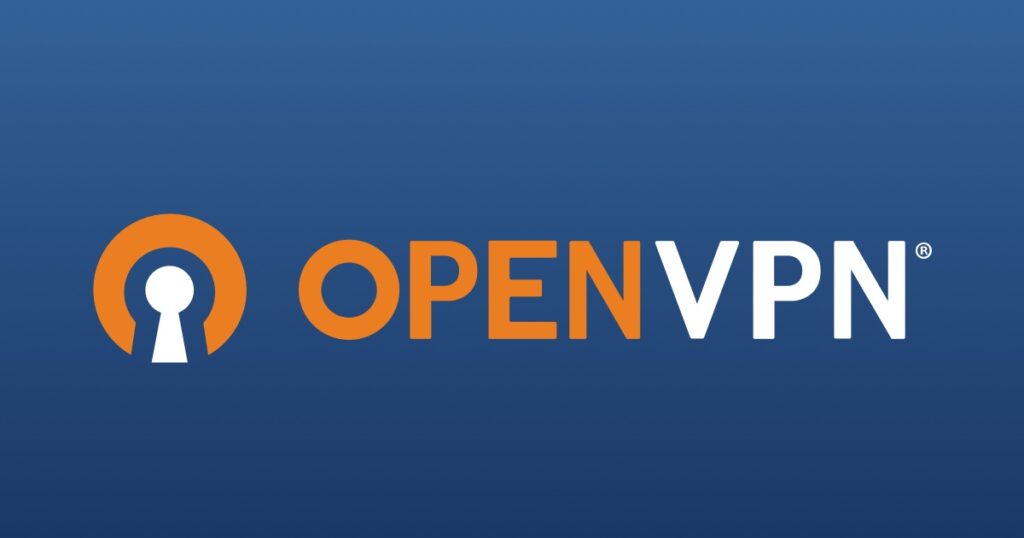We may earn a small commission if you choose to purchase from our links (at no extra cost to you!)
Best Open-Source VPNs
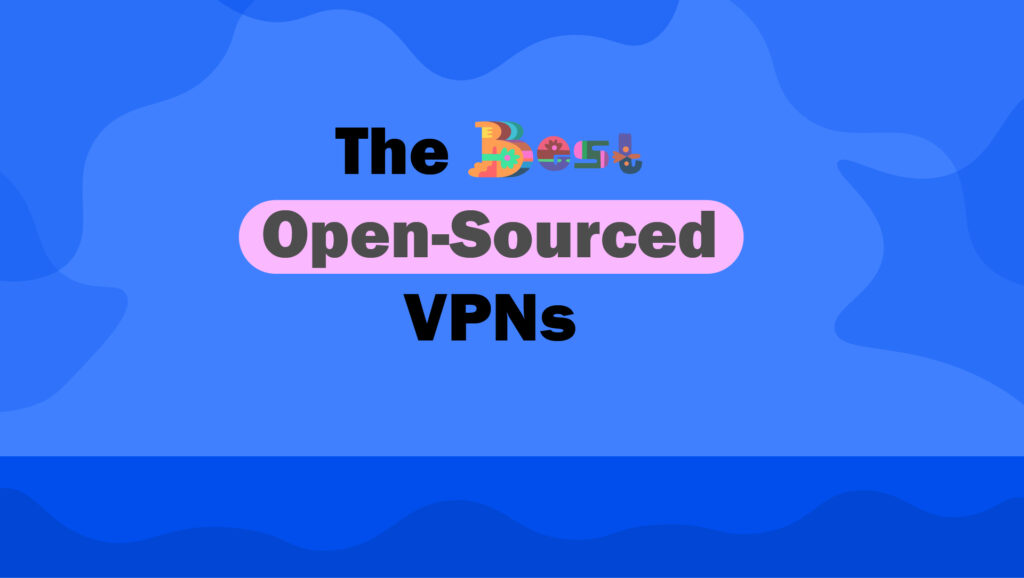
As privacy becomes more of a luxury than a basic need, companies strive to gather as much user information as possible. They often collect data to sell it to third parties for creating advanced targeted ads or for more nefarious purposes.
On the bright side, we have VPNs to protect us, right? While this is true, some heavily promoted/popular VPNs have been infiltrated by hackers, creating yet another privacy issue.
Is there a solution to this problem? Yes, Open-source VPNs. Although they aren’t completely foolproof, they are far more secure and have a much better reputation than regular closed-source VPNs. Open-source VPNs are less common than regular closed-source VPN services because they don’t appeal to the masses and are trickier to set up.
The greatest advantage of an open-source VPN is that all of its source code is easily accessible to the public, ensuring that the company isn’t hiding anything from its users. Open-source VPNs use SSL/TLS encryption protocols, which are highly secure and have been tested and improved over two decades.
On the other hand, there are several downsides you might encounter when using an open-source VPN. Open-source VPNs often lack extra features that closed-source VPNs offer, such as an automatic kill switch, malware blockers, multi-hop, and DNS leak protection, which are commonly found in “regular” or closed-source VPN services. If you’re interested in the best VPNs that are not open-sourced, we have created a list of them.
However, some users prioritize privacy over these additional features. If you value privacy more than all the extras, you should consider open-source VPNs. With that said, here are the five best open-source VPNs:
The number one place in this list is OpenVPN. OpenVPN is a full-out open-source VPN created for both enterprises and regular users. Their version for regular users is called Private Tunnel, and their version for business offers the same as Private Tunnel plus additional features that regular VPNs might offer. OpenVPN might not be as easy to set up as other VPNs.
The big advantage that OpenVPN has compared to other VPNs is its compatibility with devices and different operating systems. It works well with Windows, Linux, mobile, iOS, or anything you want– just as long as you can access the cloud. It’s also efficient and puts much less responsibility on the client-side. See the full list of OpenVPN compatibility below:
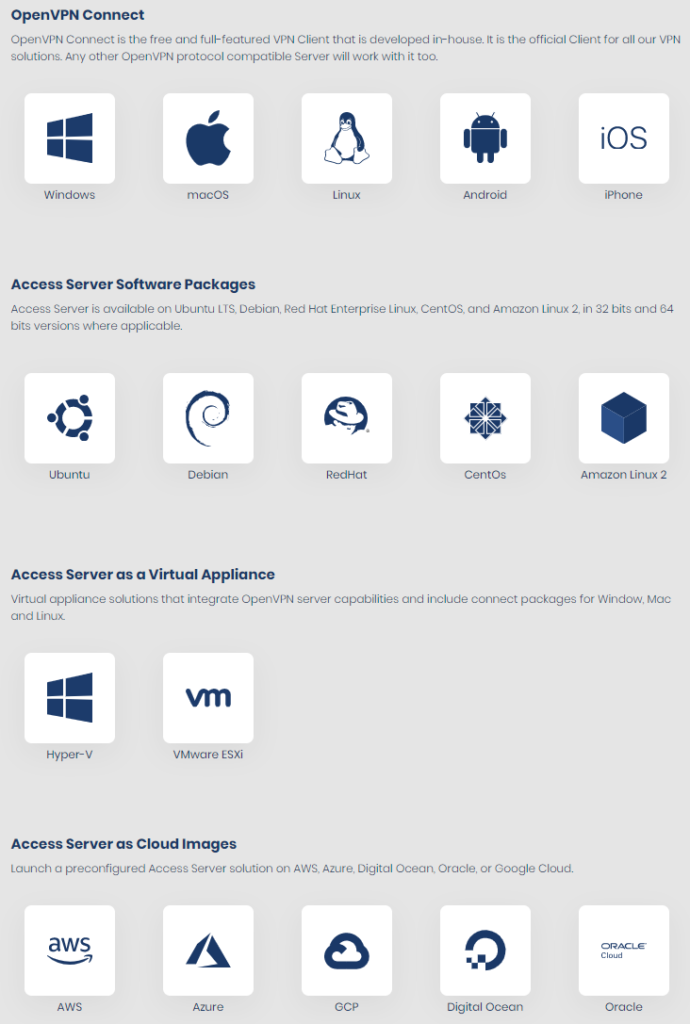
OpenVPN’s flexibility and compatibility makes it the best open-source VPN for Windows and the hands-down most recommended and popular VPN. With OpenVPN, you can activate the encryption, certification, and authentication features of OpenSSL library for further protection. It offers great support for dynamic IP addresses, DHCP (Dynamic Host Configuration Protocol), and it can be ported to popular operating systems.
OpenVPN is also great at traversing NAT firewalls and firewalls, meaning it can bypass firewalls and gateways that could block the connection. OpenVPN also supports both the UDP and TCP transports.
7. WireGuard - Newest Open-Source VPN

WireGuard is a relatively new VPN protocol that aims to provide a simpler, more efficient, and faster way to set up a VPN compared to traditional protocols like IPSec and OpenVPN. It was designed with the goal of being as easy to configure as SSH, while also offering high performance and strong security.
One of the key features of WireGuard is its simplicity. It is implemented in just a few thousand lines of code, making it much easier to audit for security vulnerabilities compared to older protocols that have millions of lines of code. This simplicity also means that WireGuard is easier to deploy and configure, requiring minimal configuration to get a VPN up and running.
WireGuard also aims to improve on some of the limitations of older protocols. For example, it uses a concept called “Cryptokey Routing” to associate public encryption keys with a list of IP addresses that are allowed to communicate over the VPN tunnel. This helps to simplify the routing process and improve performance.
In addition to its simplicity, WireGuard is also known for its efficiency. It is designed to only transmit packets when necessary, which helps to reduce latency and improve performance. This can be particularly beneficial for mobile devices or other devices with limited bandwidth.
WireGuard is available for a wide range of platforms, including Windows, macOS, Linux (CentOS, Fedora, Ubuntu, Debian), and Android. It also supports both IPv4 and IPv6, making it compatible with the latest networking technologies.
While WireGuard is still considered experimental and under active development, it has been gaining popularity due to its simplicity, efficiency, and security features. However, as with any new technology, it’s important to exercise caution and not rely on it for mission-critical applications until it has undergone more thorough testing and development.
ZeroTier - An Unique Option
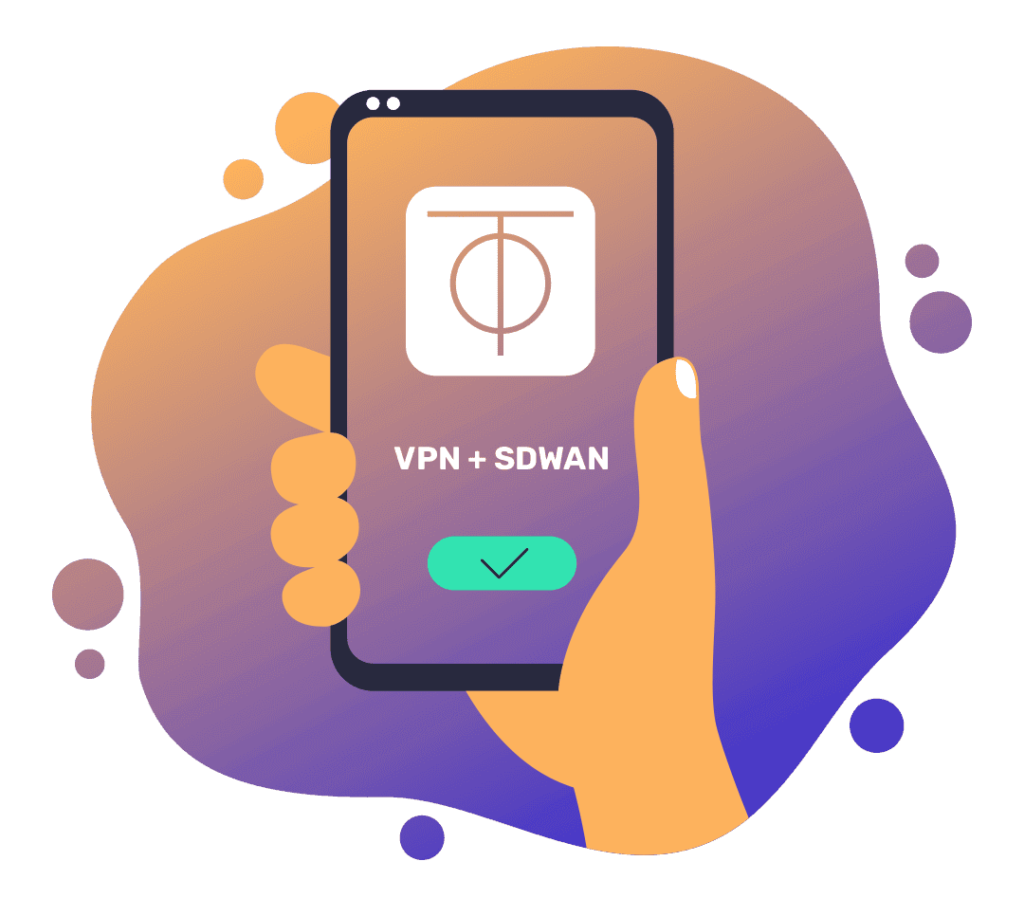
ZeroTier is a groundbreaking open-source VPN solution that is transforming networking with its decentralized, peer-to-peer approach. Unlike traditional VPNs that rely on centralized servers, ZeroTier creates a secure, global virtual Ethernet network that is easy to use and incredibly secure.
What is ZeroTier?
ZeroTier is a software-defined networking platform that allows you to create virtual networks that can span the globe. It uses a unique peer-to-peer architecture to create a secure and encrypted network that is accessible from anywhere in the world. ZeroTier’s decentralized approach means that there are no centralized servers that can be compromised, making it incredibly secure.
Key Features:
- Ease of Use: ZeroTier is incredibly easy to set up and use. You simply install the ZeroTier client on your devices, join a network, and you’re ready to go. There’s no need to configure complicated settings or deal with complex networking concepts.
- Security: ZeroTier uses end-to-end encryption to secure your data as it travels across the network. This means that your data is protected from eavesdroppers and hackers, ensuring that your information remains private and secure.
- Decentralization: ZeroTier’s decentralized architecture means that there are no central servers that can be compromised. This makes it incredibly resilient to attacks and ensures that your network remains secure at all times.
- Global Reach: ZeroTier allows you to create networks that can span the globe, allowing you to connect devices from anywhere in the world. This makes it ideal for remote teams, IoT deployments, and other scenarios where traditional networking solutions fall short.
Use Cases:
- Remote Teams: ZeroTier is ideal for remote teams that need to collaborate and share resources securely over the internet.
- IoT Deployments: ZeroTier can be used to create secure and scalable networks for IoT devices, allowing them to communicate with each other and with central servers.
- Gaming: ZeroTier can be used to create low-latency networks for gaming, allowing players to connect to each other securely over the internet.
ZeroTier is a game-changer in the world of networking. Its revolutionary approach to VPNs offers unparalleled security, flexibility, and ease of use. Whether you’re a remote team looking to collaborate securely, an IoT developer looking for a scalable networking solution, or a gamer looking for a low-latency network, ZeroTier has you covered.
2. SoftEther VPN - multi-protocol VPN, free, open-source

SoftEther is the short form of Software Ethernet and started out as a project by a student attending the University of Tsukuba located in Japan. It’s a free, open-source VPN that supports multiple VPN protocols. SoftEther VPN Bridge and VPN server run on Windows, OSX, Linux, Solaris, and FreeBSD, and the client app works on Linux, macOS, and Windows.
The VPN Bridge is often used only for enterprises that want to set-up site-to-site VPNs, meaning the individual users will only need to have the server and client programs to set up remote access. SoftEther can bypass firewalls and traverse NAT firewalls. If you encounter a restricted network that only allows ICMP and DNS packets, you can use SoftEther’s VPN over ICMP or VPN over DNS options to bypass the firewall. Another great feature about SoftEther is that it works with both IPv4 and IPv6.
SoftEther VPN utilizes an ultra-optimized SSL-VPN protocol that offers firewall bypass/resistance, fast throughput, and low latency. SoftEther VPN supports SSL-VPN, OpenVPN, IPSec, L2TP, and L2TPv3 protocols. SoftEther’s set-up process is easier than OpenVPN’s and strongSwan but still requires some technical knowledge.
3. Openswan VPN - The Best Open-Source VPN for Linux
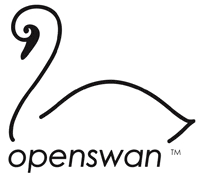
Openswan VPN is a popular open-source VPN that works especially well with the network security of Linux devices. It’s been around since 2005 and requires a bit of knowledge and effort to get it working, but there is an in-depth wiki plus an activity community.
Openswan is an IPSec implementation for Linux and even comes pre-installed on some versions of Linux (such as Fedora, Red Hat, Gentoo, Debian, and Ubuntu). You can also set up IPSec links with enterprise computers and mobile clients. Openswan VPN is also compatible with different IPsec extensions such as x.509 Digital Certificates, IKEv2, NAT Traversal, and the list goes on.
4. strongSwan

Yet another VPN with swan in its name. strongSwan offers a wide range of operating systems as it can run on Android, Windows, iOS, Linux, FreeBSD, and more. They also offer an official Android app on the Play Store which can make the setup process much easier.
strongSwan uses either the IPsec or IKEv2 protocol. When compared to OpenVPN, the IKEv2 protocol connects much quicker while offing similar security and performance. This can be convenient as you don’t have to install yet another app on the client, as the latest devices support IKEv2. strongSwan can traverse NAT firewalls.
strongSwan isn’t the easiest VPN to set up and especially it isn’t the easiest to use, even though it has a good amount of documentation and active members. The VPN is catered towards users who have more experience and is great for enterprises.
5. Libreswan - An open-source, reliable VPN

Libreswan is a free and open-source VPN service that is based on the popular IKE (Internet Key Exchange) and IPsec (Internet Protocol Security) VPN protocols. It provides a secure and encrypted communication channel over the internet, making it suitable for protecting sensitive data and ensuring privacy.
One of the key advantages of Libreswan is its compatibility with Linux systems. It leverages the built-in “XFRM” IPsec stack and the DDNS (Dynamic Domain Name System) crypto library, which are integral parts of the Linux networking stack. This makes it easy to set up and configure on Linux distributions such as RHEL/EPEL, Arch Linux, and Fedora.
Libreswan has been actively developed for over 15 years, earning it a strong reputation and trust within the community. Its longevity is a testament to its reliability and security features, which have been refined over time to meet the evolving needs of users.
In addition to its compatibility with Linux, Libreswan supports a wide range of authentication methods, encryption algorithms, and key exchange protocols. This flexibility allows users to configure the VPN to meet their specific security requirements, making it suitable for a variety of use cases.
Overall, Libreswan is a robust and reliable VPN solution that offers strong security and privacy protections. Its compatibility with Linux and long history of development make it a popular choice for users looking for a secure and open-source VPN solution.
6. freelan - best open-source VPN for Windows.

Freelan is a great open-source VPN that’s released under the GPLv3 license. Its purpose is to offer a high level of privacy and security while connected to the VPN. It currently offers three configurations, client-server, hybrid, and peer-to-peer.
The VPN supports a range of operating systems such as Windows, macOS, Linux, and more. freelan doesn’t offer a UI, but you can integrate it into commercial applications. It’s mainly used to create VPNs that unlock websites, mask IP addresses, and encrypt your network traffic.
What Is Libre Software And Why Do I need It?
Libra software (also known as open-source software) sometimes may seem like a luxury, but in reality, many people use it every day. The power or Libra software (open-source software) is that all the code is publically available, and the software tends to be more trustworthy and reliable.
With software that isn’t open-sourced you put in the information it wants, does the task then returns you the result. You don’t know how the software returned the result, you only know that it did something. With open-source software, you can see every step your information takes (full transparency) to get to the final result.
Open-source software is becoming more and more important as privacy is being much harder to obtain. It gives full transparency to the user, it’s often free of charge and usually created by people who are genuinely curious in the software not so much the profit.
What are open-source VPNS?
Open source VPNs are virtual private network (VPN) solutions that are built on open source software. This means that the source code of the VPN software is publicly available and can be modified and redistributed by anyone under the terms of the software’s license.
Open source VPNs are often used by organizations that require more control over their VPN infrastructure and want to avoid the vendor lock-in that can come with proprietary VPN solutions. By using open source VPN software, organizations can customize and configure the VPN to meet their specific needs and can also benefit from the community-driven development and support of the open source community.
Some popular open source VPN solutions include OpenVPN, WireGuard, and SoftEther VPN. These solutions offer various features and capabilities, such as encryption, authentication, access control, and support for different operating systems and platforms.
It’s important to note that while open source VPN solutions can provide greater control and flexibility, they may also require more technical expertise to configure and maintain compared to proprietary VPN solutions. Additionally, organizations should ensure that they comply with relevant laws and regulations regarding privacy and data protection when using any VPN solution.
Why use Open-Source?
There are several benefits of using an open source VPN compared to a commercial VPN:
Transparency: With open source VPNs, the source code is publicly available, which means users can inspect the code to verify that there are no backdoors or security vulnerabilities. This transparency provides users with greater confidence in the security and privacy of their VPN connection.
Flexibility: Open source VPNs offer more flexibility than commercial VPNs, as users can modify the source code to meet their specific needs. This means that users can customize the VPN to work with specific operating systems or devices, or to provide additional features or functionality.
Cost: Open source VPNs are often free or significantly less expensive than commercial VPNs. This can be especially beneficial for small businesses or individuals who may not have the budget to pay for a commercial VPN service.
Community support: Open source VPNs are often supported by a community of developers who contribute to the software and provide support to users. This means that users can benefit from the collective knowledge and expertise of the community, which can be especially useful for resolving technical issues or finding solutions to complex problems.
Privacy: With open source VPNs, users can be assured that their data is not being collected or monitored by the VPN provider. This is because the source code is available for anyone to inspect, which means that users can verify that the VPN is not logging their activity or collecting their personal data.
Overall, open source VPNs offer greater transparency, flexibility, and privacy compared to commercial VPNs, making them a popular choice for users who are looking for a more customizable and secure VPN solution.
Summary
If privacy is an important aspect of your online presence and can’t bring yourself into trusting a “regular” VPN, a free open-source VPN software is a great solution for you. With complete transparency and full knowledge of exactly how your data is used and handled. The only downside is that it may be a little trickier to set up, but when you got it running you shouldn’t have to worry since you have full control of your privacy.
Recap of the best open-source VPNs:
- OpenVPN – best open-source VPN, is compatible with many operating systems and devices.
- SoftEther VPN – multi-protocol VPN, free and open-source.
- Openswan VPN – the best open-source VPN for Linux, and has an active community.
- strongSwan – great open-source VPN, a wide range of operating systems.
- Libreswan – open-source, and reliable VPN.
- freelan – open-source, genuine, reliable, great for windows.
- WireGuard – the newest open-source VPN (maybe the next king)
Those who are looking for the best VPNs for Linux, we have created an awesome list!

